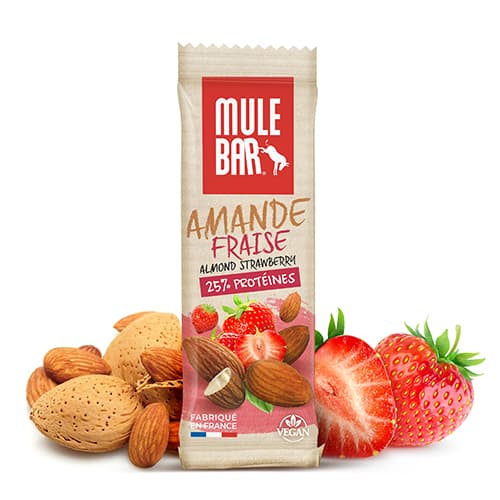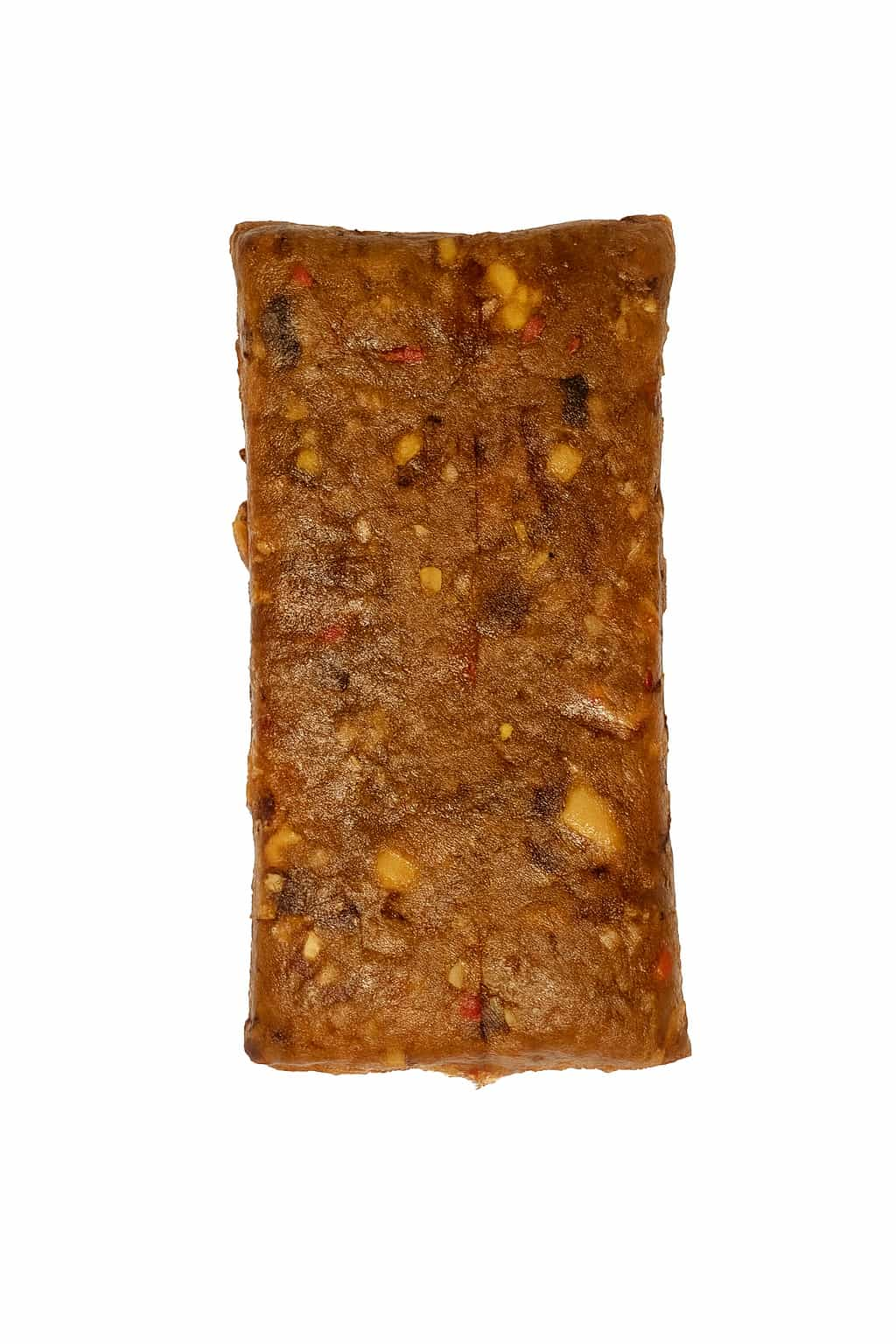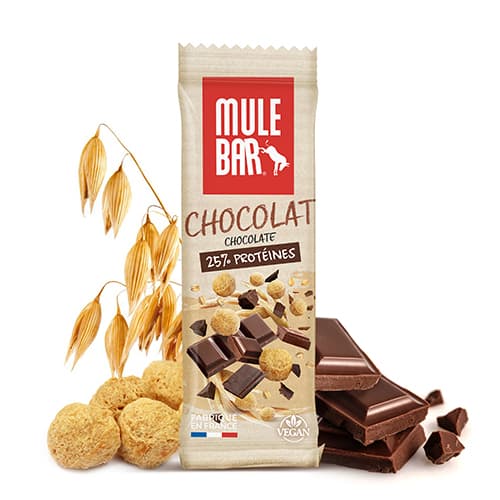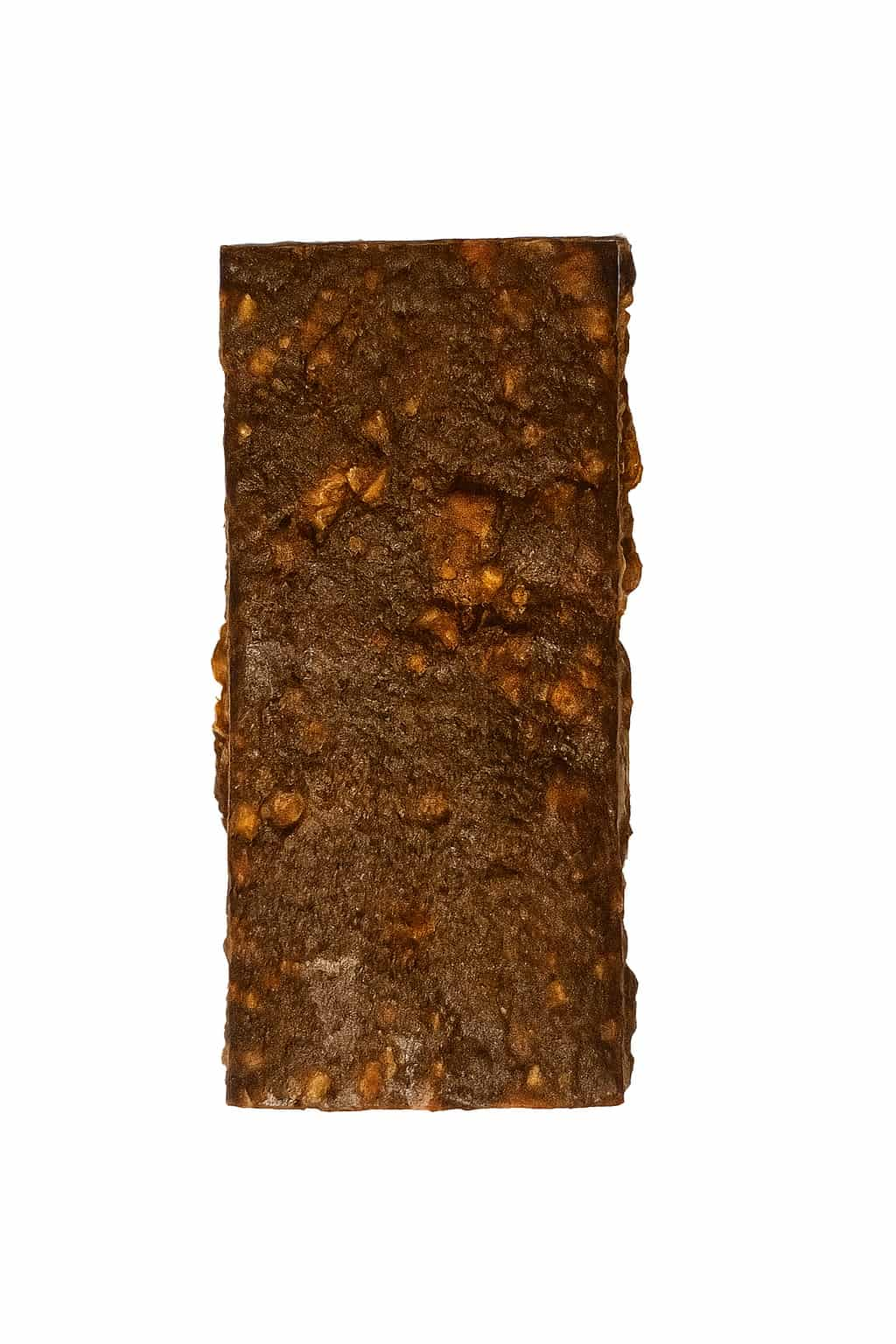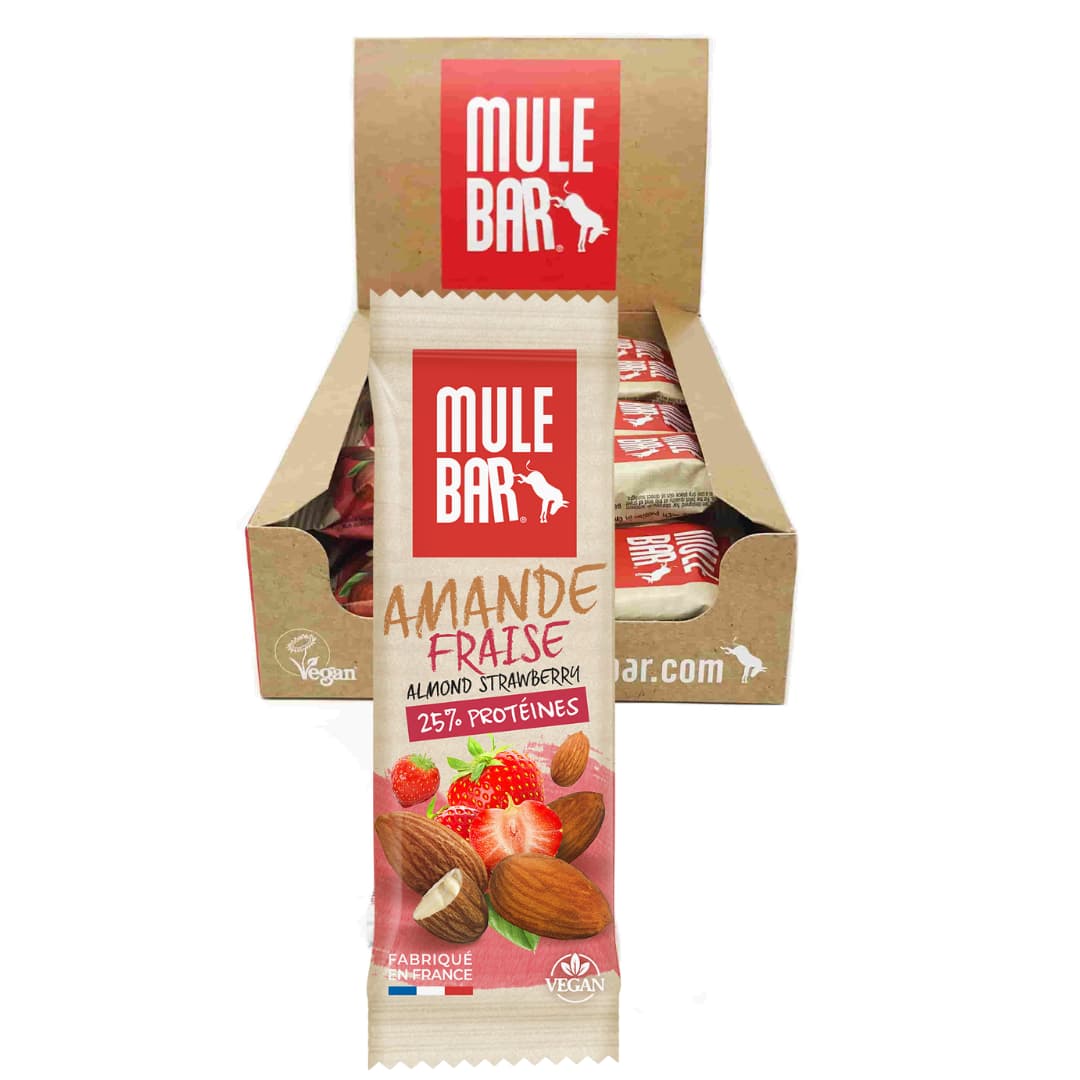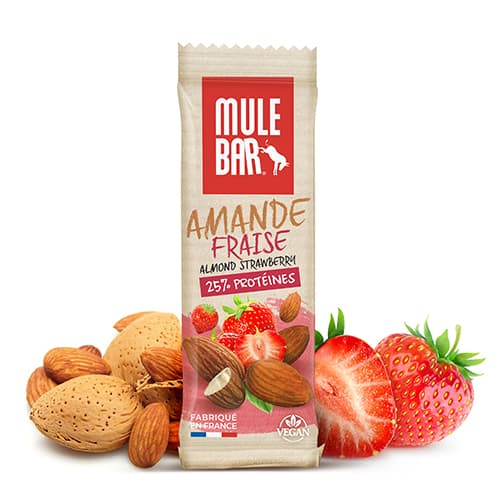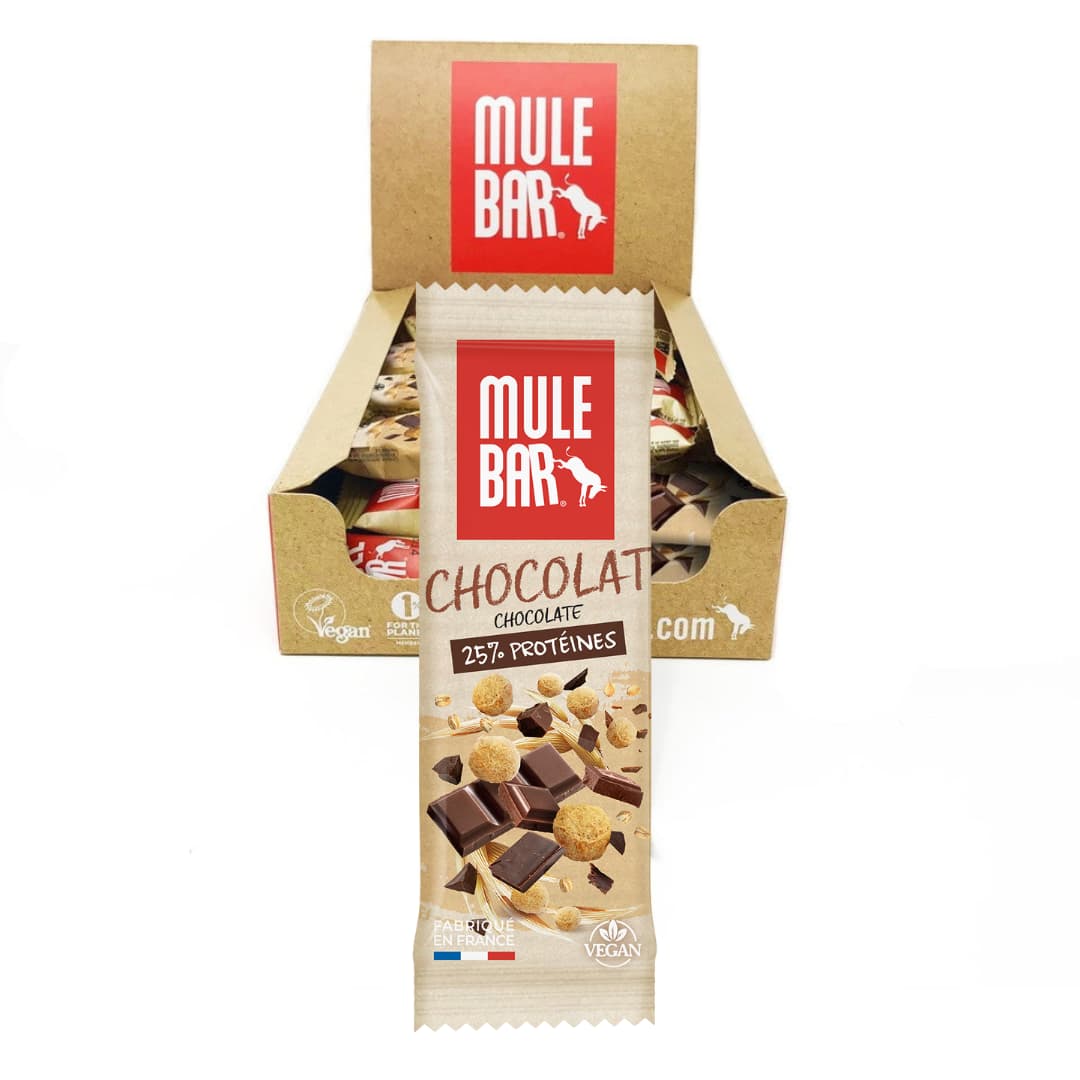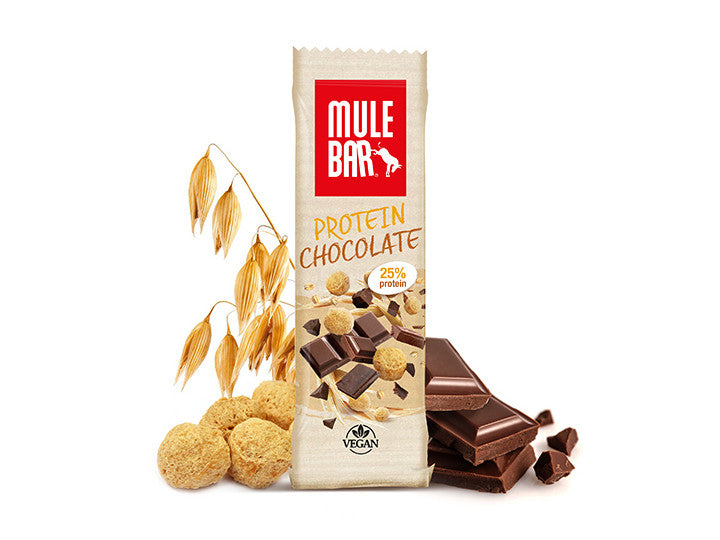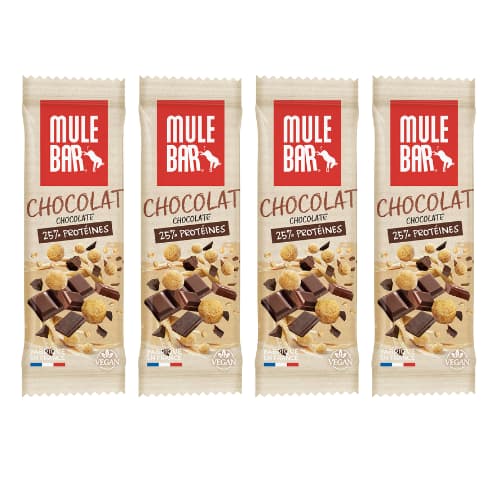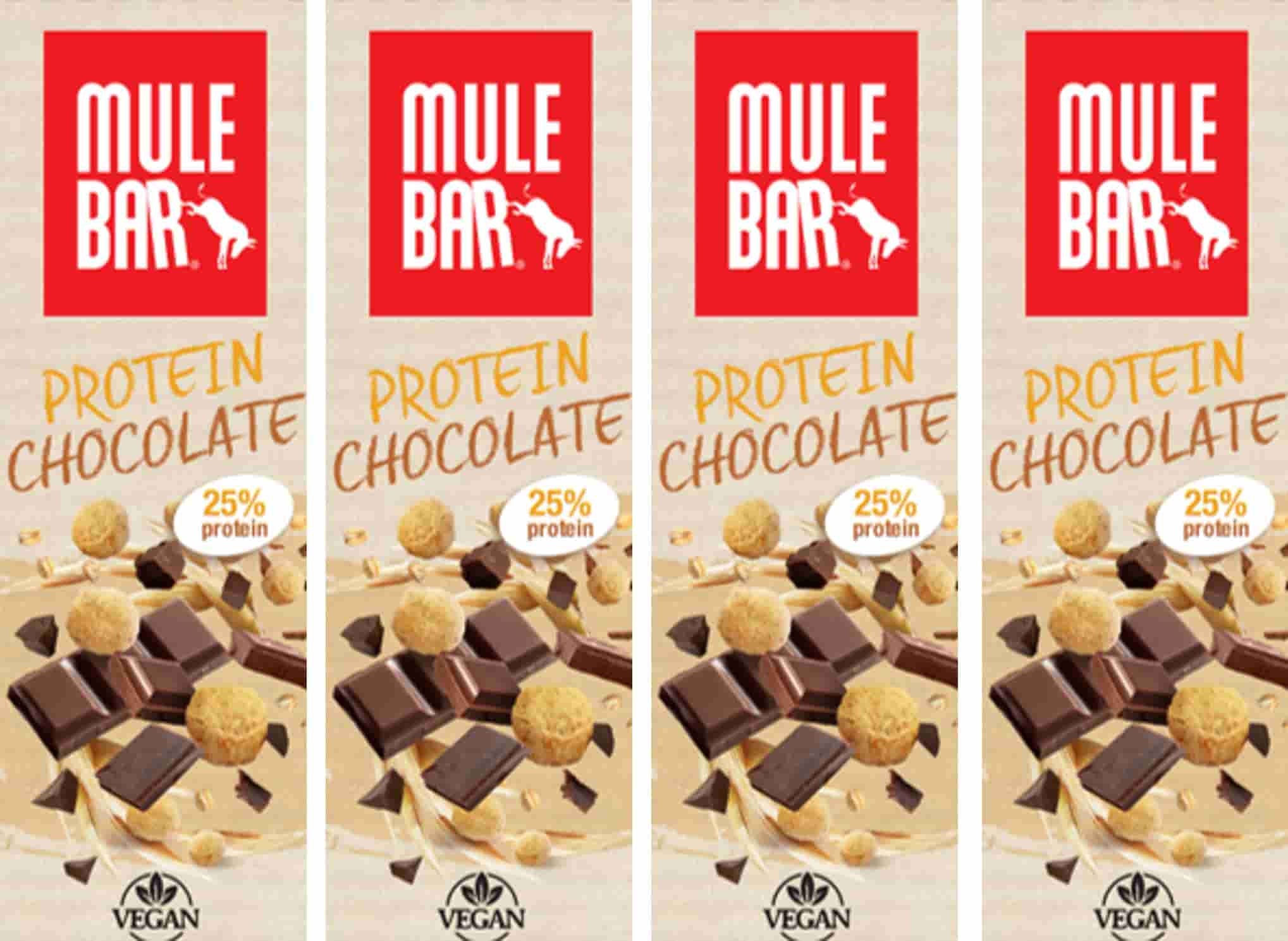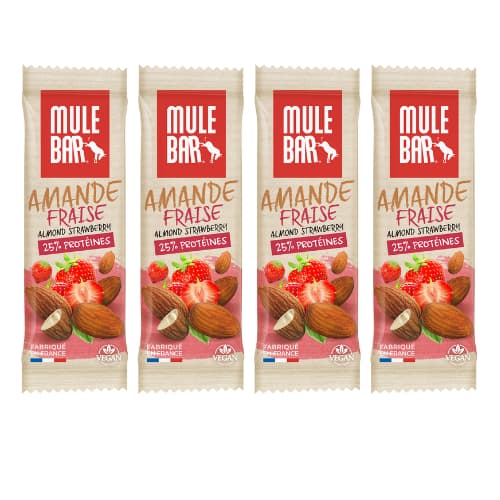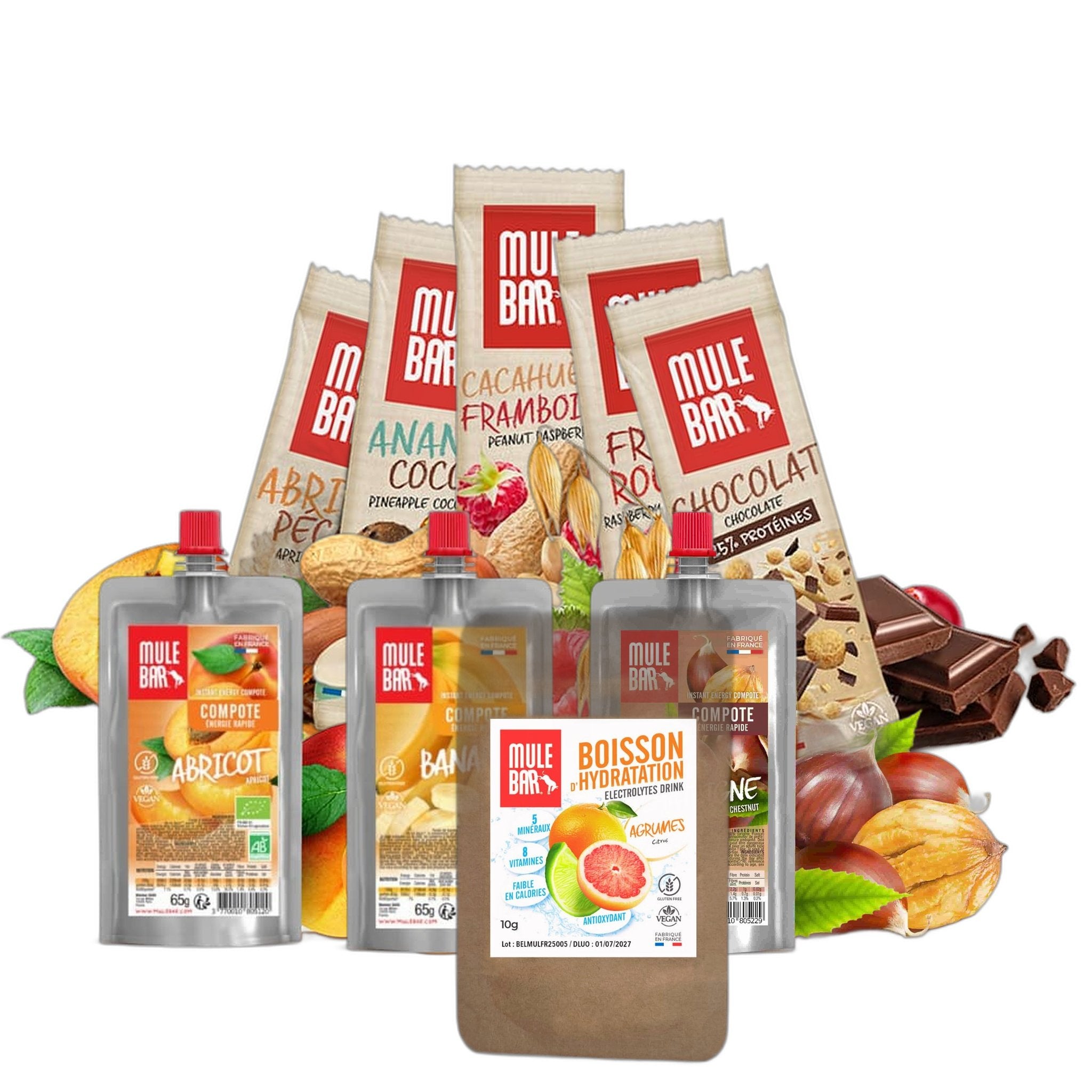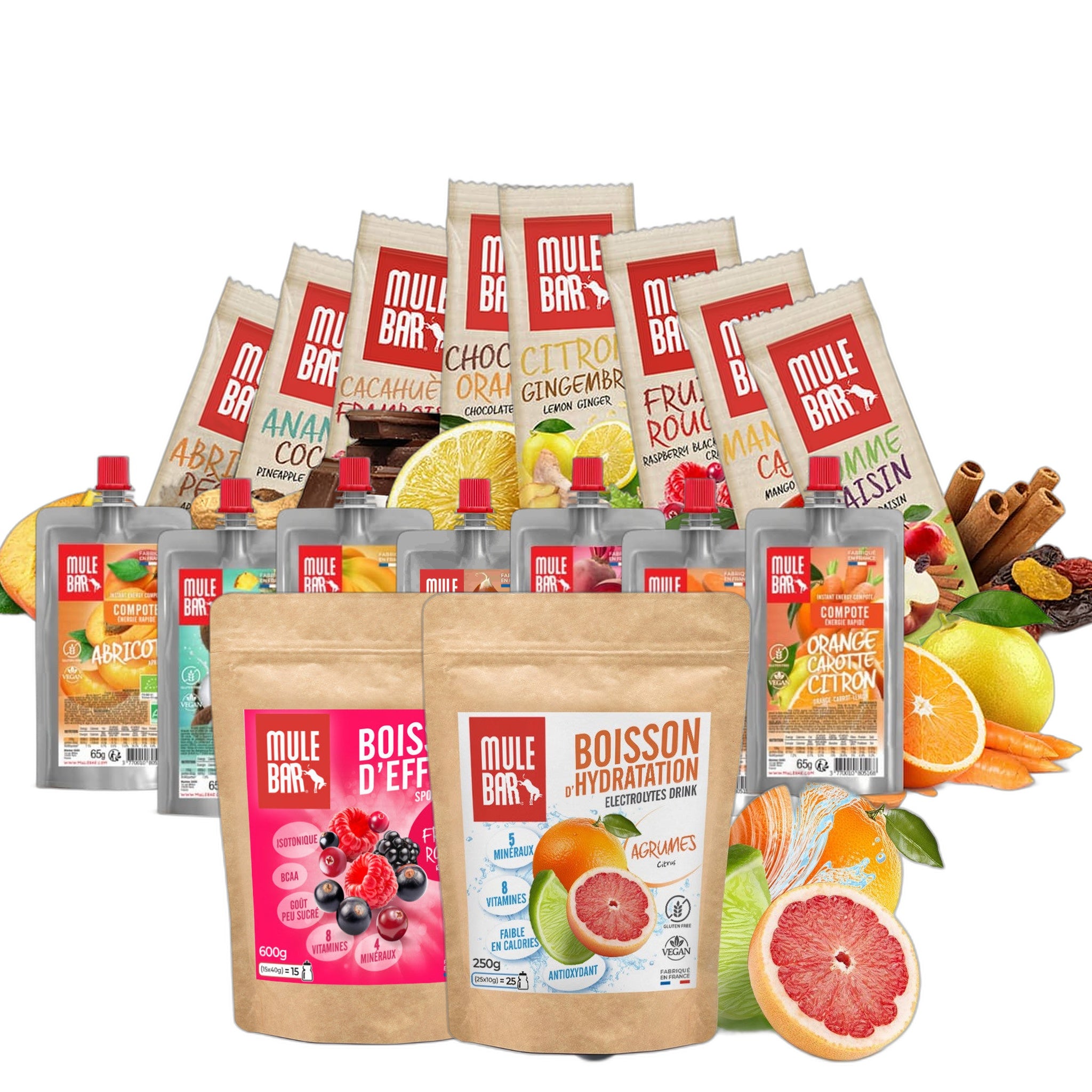Protein bars
Like all our sports nutrition bars, our protein bars are 100% natural and vegan. Pea plant protein, almonds, and delicious strawberries for one, or ultra-crispy soy balls with chocolate for the other, that's it! No preservatives, no artificial coloring, and no synthetic flavors! The chocolate bar is low in sugar with 3g only.
Generally consumed after exercise to provide the body with proteins that help repair damaged muscle fibers (these are known as recovery bars), our protein bars can also be consumed during a long effort (marathon, trail running, long bike rides) and even as a snack because they are very low in sugar.
After sports, our vegan protein bars are ideal for optimal recovery thanks to their quality ingredients and recipes that are different from traditional vanilla and caramel flavors.
From pea protein and almonds for the Strawberry Almond bar
From soy protein and good chocolate for the chocolate bar
Protein is known for repairing damaged or broken muscle fibers during exercise, but they have many other benefits.
What are proteins used for?
Proteins are essential macronutrients that play a crucial role in many biological functions of the body. They are made up of amino acids, which are the "building blocks" of cells and tissues. Here are the main functions and roles of proteins in the body:
- Tissue construction and repair :
Proteins are essential for the growth, repair, and maintenance of body tissues, including muscles, skin, bones, and organs. They are especially important for athletes and people engaged in intense physical activities, as they help repair the micro-tears in muscle fibers caused by exercise. - Formation of enzymes and hormones :
Enzymes are proteins that speed up chemical reactions in the body, such as digestion and metabolism. Proteins are also the basis of many hormones (like insulin), which regulate various body functions, such as growth, metabolism, and reproduction. - Immune system support :
Proteins are essential for the formation of antibodies, which are specialized proteins used by the immune system to identify and neutralize pathogens such as bacteria and viruses. - Transport and storage of molecules :
Some proteins, like hemoglobin, transport essential molecules such as oxygen in the blood. Other proteins are used to store specific molecules, like ferritin, which stores iron in the liver. - Maintaining cell structure :
Proteins play a key role in the structure of cells. For example, collagen is a protein that provides structure to the skin, bones, tendons, and ligaments, thereby contributing to the health and integrity of these tissues. - Energy source :
Although not their primary function, proteins can be used as an energy source when carbohydrate and fat reserves are insufficient. However, the body prefers to use proteins for tissue repair and construction rather than as fuel. - Regulation of fluid balance and pH :
Proteins help maintain fluid balance in the body and regulate blood pH. Plasma proteins, such as albumin, play a crucial role in maintaining the osmotic balance of fluids in the body.
The importance of proteins in the diet
Proteins must be consumed regularly because the body cannot store them in the same way as carbohydrates and fats. A diet rich in proteins, combined with healthy carbohydrates and fats, is essential for good health, optimal physical performance, and efficient recovery.
Sources of protein include:
- Animal: Meat, fish, eggs, dairy products.
- Plant-based: Legumes (lentils, chickpeas, soy), tofu, tempeh, nuts, seeds, and some grains like quinoa.
When to eat a protein bar?
After training (post-workout):
- Objective: Promote muscle recovery and protein synthesis.
- Protein bars are particularly useful after an intense workout session (like weight training, intense cardio, or a football match). They help repair damaged muscle fibers and replenish muscle glycogen stores. It is recommended to consume a protein bar within 30 to 60 minutes after exercise to maximize recovery.
As a snack between meals:
- Objective: Increase protein intake and reduce cravings.
- A protein bar can be a convenient snack between meals, especially if you have high protein needs (such as athletes or people on a weight loss diet). It helps maintain satiety, stabilize blood sugar, and prevent overeating at the next meal.
Before training (pre-workout):
- Objective: Provide stable energy and prevent hunger during training.
- Eating a protein bar about 1 to 2 hours before a workout can provide a stable source of energy, especially if it also contains carbohydrates. This can help improve performance, especially for resistance or strength training.
As a light meal replacement:
- Objective: Provide a quick and convenient option when a full meal is not possible.
- For people on the go or with a busy schedule, a protein bar can serve as a light meal substitute. However, it is important to ensure that the bar also contains carbohydrates, fiber, and healthy fats to provide balanced nutrition.
During a hike or prolonged physical activity:
- Objective: Provide a sustainable energy source and protein to support endurance.
- Protein bars can be useful during long-duration activities like hiking, trail running, cycling, or endurance sports. They offer a mix of proteins and carbohydrates that help maintain energy and prevent muscle breakdown.
Points to consider when consuming protein bars
- Choice of bar: Opt for bars with natural ingredients and without added sugars or preservatives. Brands like Mulebar offer protein bars made from natural ingredients, which can be a good option to avoid artificial additives.
- Nutritional balance: Make sure the bar contains not only protein but also a balanced amount of carbohydrates and fats to support your energy needs.
- Moderation: Although convenient, protein bars should not regularly replace balanced meals. They should be used as a complement to a healthy and varied diet.
If you have specific needs or want personalized recommendations, feel free to consult a nutritionist or sports doctor.
How much protein should be consumed daily?
According to the WHO, an adult should consume 0.8g per kg of body weight (a man weighing 80kg needs 64g of protein per day). An adult athlete (a trail runner or cyclist, for example) or a man looking to gain muscle mass can consume up to 2g per kg of body weight, or 160g of protein per day.
With a protein content of 25%, each Mulebar protein bar provides 10g of plant-based protein.
Mulebar protein bars are available individually, in packs of 4, or in packs of 15 at a more attractive price.
For more information about our protein bars and the benefits of plant-based protein compared to whey protein of animal origin (milk), you can read this article on the Mulebar blog:"the best vegan protein bars."
Do protein bars make you put on weight?
Protein bars are very fashionable because some people think that all you have to do is eat them and you'll put on muscle. Fortunately, the vast majority of consumers are sports enthusiasts or people who follow a healthy lifestyle and are well aware that weight gain or loss depends on energy balance. If we consume more calories through our diet than we expend through physical activity, we put on weight and vice versa. Anyone who is sufficiently active to burn off all the calories stored will keep their weight stable. Protein bars are therefore not fattening if their calories do not add to your daily intake.



